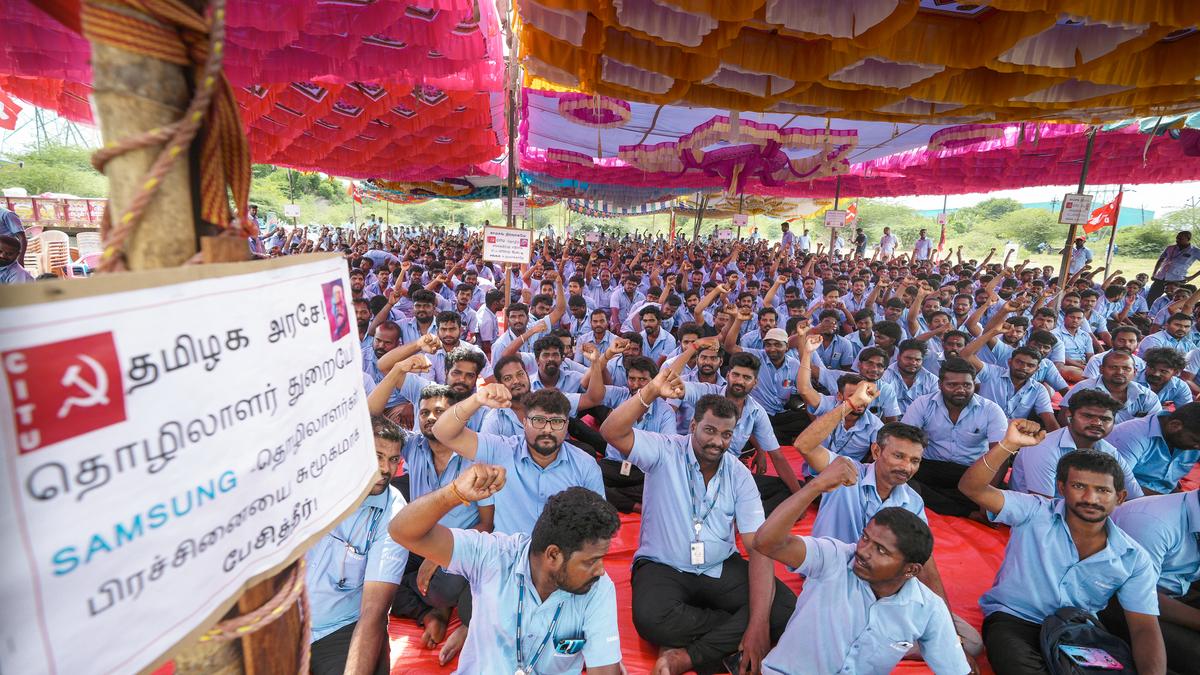
Are industrial strikes bad for business? Data from Tamil Nadu says otherwise
The Hindu
Samsung India Electronics' strike in Tamil Nadu raises questions about the impact of worker strikes on business profitability.
When workers at Samsung India Electronics’ factory in Sriperumbudur, near Chennai, went on strike for more than a month recently, many people argued once again that strikes are harmful to business. This view gathered steam when Samsung India Electronics claimed in the Madras High Court on Tuesday that it had suffered a loss of around $100 million due to the strike by the workers, who were demanding recognition of their recently formed trade union. On October 15, the Tamil Nadu government announced that the strike had finally been called off.
The strike was widely seen as a disruption to the State’s industrial climate and a potential threat to future industrial investments. However, data suggests that in most industrialised States, worker strikes are fairly common, with the number of factories continuing to remain high and even growing.
In the 2008-2018 period, Tamil Nadu was the State with the highest number of industrial strikes, but it was also where the maximum number of factories were set up and factory workers employed. This contradicts the argument that strikes are harmful to business.
Reliable State-wise data for workplace disputes is available with the Union Labour Ministry between 2008 and 2018, so this is an analysis of that time period. In 2008-2018, Tamil Nadu recorded over 26% of all the strikes called, the highest among all States by a wide margin.
Chart 1 | State-wise industrial strikes in the 2008-18 period and its impact on wages, mandays and production. Each circle corresponds to a State. The farther to the right, the higher the State’s share in India’s strikes, mandays lost due to strikes, wages and production lost due to strikes
At the same time, the State also hosted 16% of India’s factories and a similar share of India’s factory workers during the period, again leading other States by a wide margin.
Chart 2 | The chart ranks the States on key indicators of industrialisation in the 2008-18 period. Each circle corresponds to a State. The farther to the right, the higher the State’s share in India’s factories, factory workers, of all factories’ GFCF and all factories’ overall profits

Air India has signed an agreement with Bengaluru Airport City Limited (BACL), a subsidiary of Bangalore International Airport Limited (BIAL), to develop a built-to-suit facility for the AME program that will feature modern classrooms, well-equipped laboratories for practical training and a team of qualified trainers.










